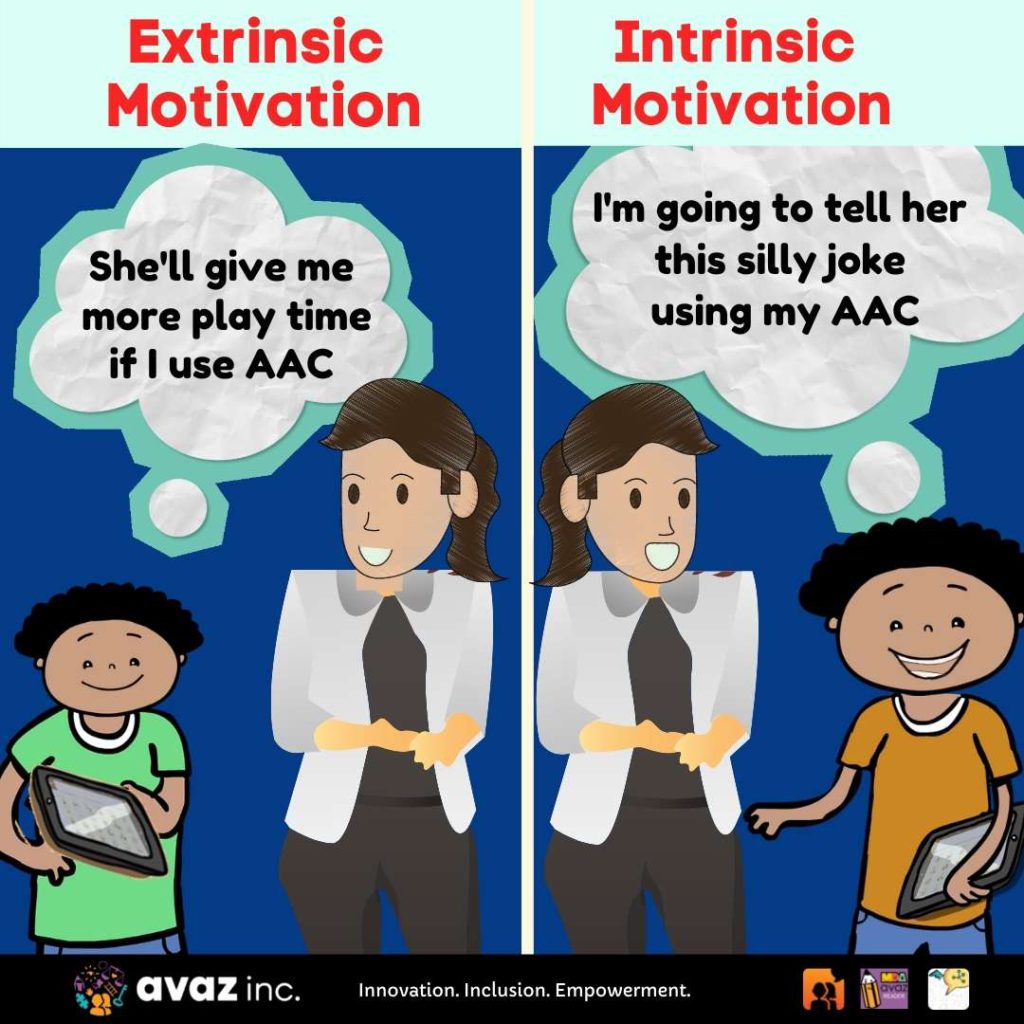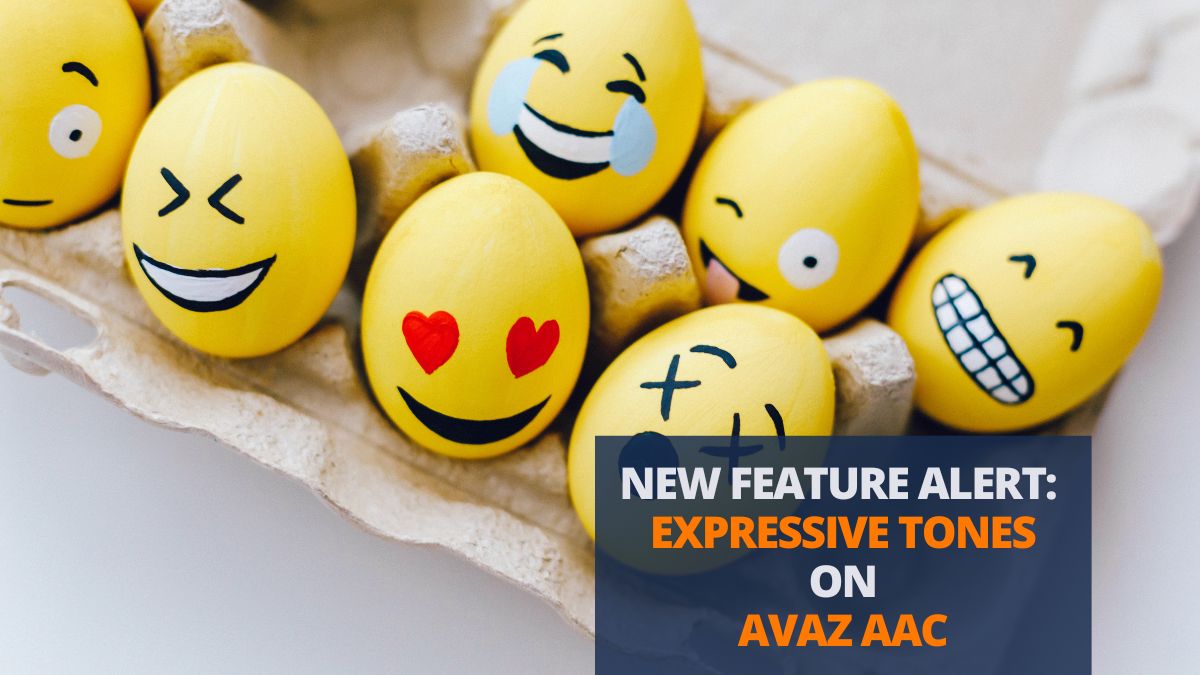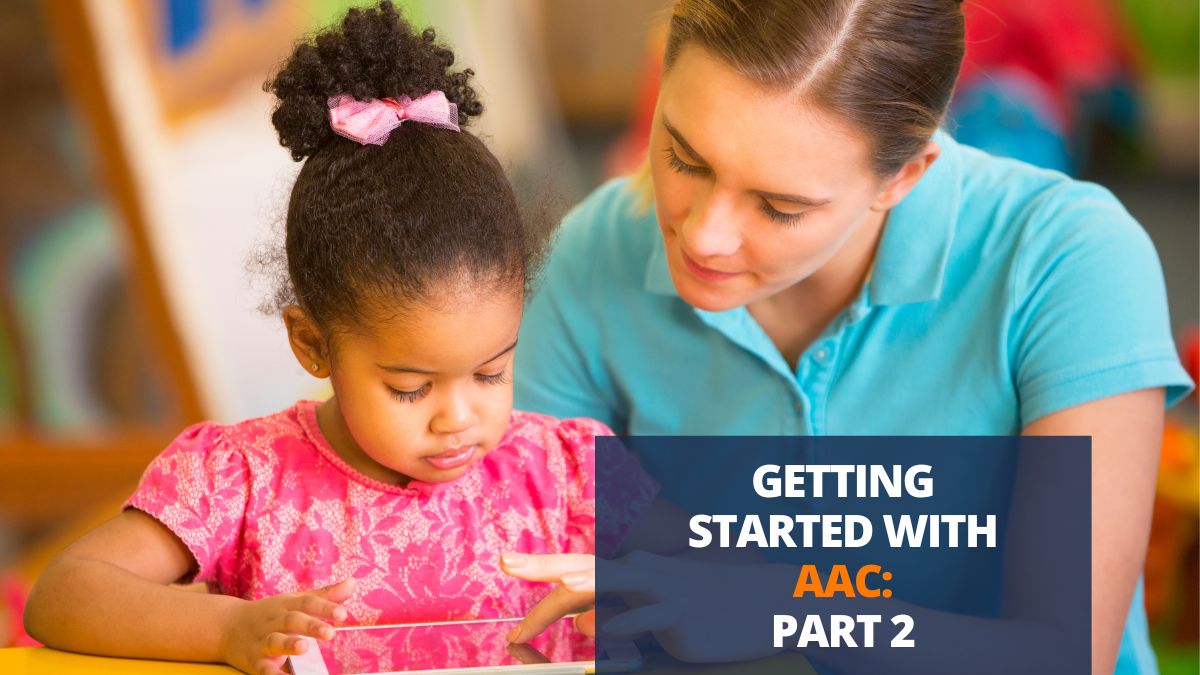Food is widely regarded as a great motivator for emergent communicators. Not without good reason. Most of us wouldn’t mind driving an extra mile to get our favorite food.
But food or toys may not motivate every learner. More importantly, you may want to think about using something the learner is naturally interested in, in addition to using external rewards.


Extrinsic and Intrinsic Motivation
There are different ways in which motivation works for us. Understanding the types of motivation will help us come up with a plan to entice communicators to engage and learn.
The two broad types of motivation are extrinsic and intrinsic motivation.
Extrinsic Motivation –
When you do something because you are expecting a reward or you want to avoid punishment and unpleasantness.
For example, a learner reading a book because you promised them a snack or more playtime.
Intrinsic Motivation –
When you do something because it is innately rewarding for you. You perform an activity/behaviour because you like to do it. You are not motivated by an external reward. The activity/behaviour is a reward in itself.
For example, a learner who is fond of birds reading a book with bird pictures. Here, the learner is not reading because they want some external reward. Rather, they are doing it because they find the activity enjoyable.


The Self-Determination Theory of Motivation
Let’s delve deeper to understand how to motivate learners including the ones who do not seem to show interest in anything at all.
Self-determination theory as put forth by Psychologists Edward Deci and Richard Ryan suggests that human beings are generally motivated when they feel the need to grow.
This theory primarily focuses on internal sources of motivation such as a sense of fulfillment.
Intrinsic Motivators
Here are a few things that learners can be driven by according to the Self-determination theory.
Autonomy – Feeling a sense of control.
When learners feel they have control over their goals/behaviours, it can really motivate them to work towards achieving their goals.
Competence: Feeling like you are capable and competent
When learners feel like they are doing a good job, it motivates them more. That’s why it’s important to set realistic goals that they can achieve.
Connection or relatedness: Feeling a sense of belonging
When learners feel connected to their communication partners and the interactions are meaningful for them, It can be inherently motivating.
How to Facilitate Motivation
While motivation works best when it comes from within, social support can play a huge role in sustaining the interest. Make sure all the stakeholders in a learner’s therapy/AAC implementation presume competence, practice wait time, and are willing to include the learner while planning activities.
Showing the learners that you care is vital. A supportive environment gives the learner confidence. Since learners with disabilities and AAC learners may be dependent on those around them to effectively communicate and learn, it becomes even more important that we build trust and genuine connections with them.
Extrinsic motivators and communicative temptations such as more TV time or sensory play time do have their place in therapy. We may need to use sabotage to elicit a response from learners from time to time. But it’s important to bear in mind giving external rewards for something that the learner is intrinsically motivated by can undermine their autonomy. When they feel like they are working for something that you are promising to offer them, it can end up being less motivating.
A simple way to show support to your learner is to be generous with praise. And be specific too about what you are praising them for. When you give positive feedback, learners can feel more competent, which in turn can be intrinsically motivating.
References
https://www.verywellmind.com/what-is-self-determination-theory-2795387



